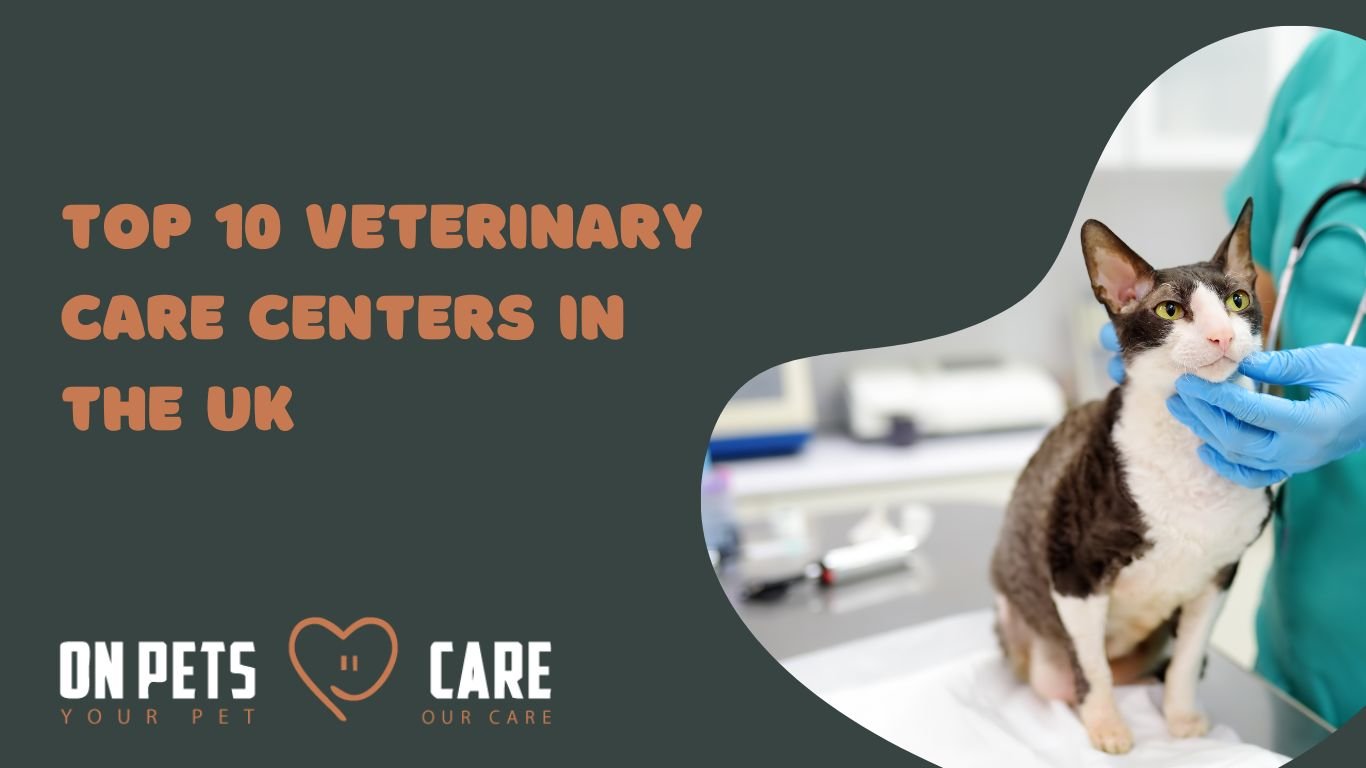Top 10 Veterinary Care Centers in the UK
Pets hold a special place in our hearts, becoming cherished members of our families with their boundless affection and companionship. Like any family member, ensuring their health and well-being is paramount. In the United Kingdom, pet owners are fortunate to have access to a range of veterinary care centers dedicated to providing exceptional medical services tailored to the needs of animals.
From routine check-ups to specialized treatments, these centers are committed to offering the highest standard of care for our beloved pets.
Let’s explore the top veterinary care centers in the UK, where your Furry, feathery, or scaly friends can receive nothing but the best attention and treatment they deserve.
Table of Contents
What is Veterinary Care?
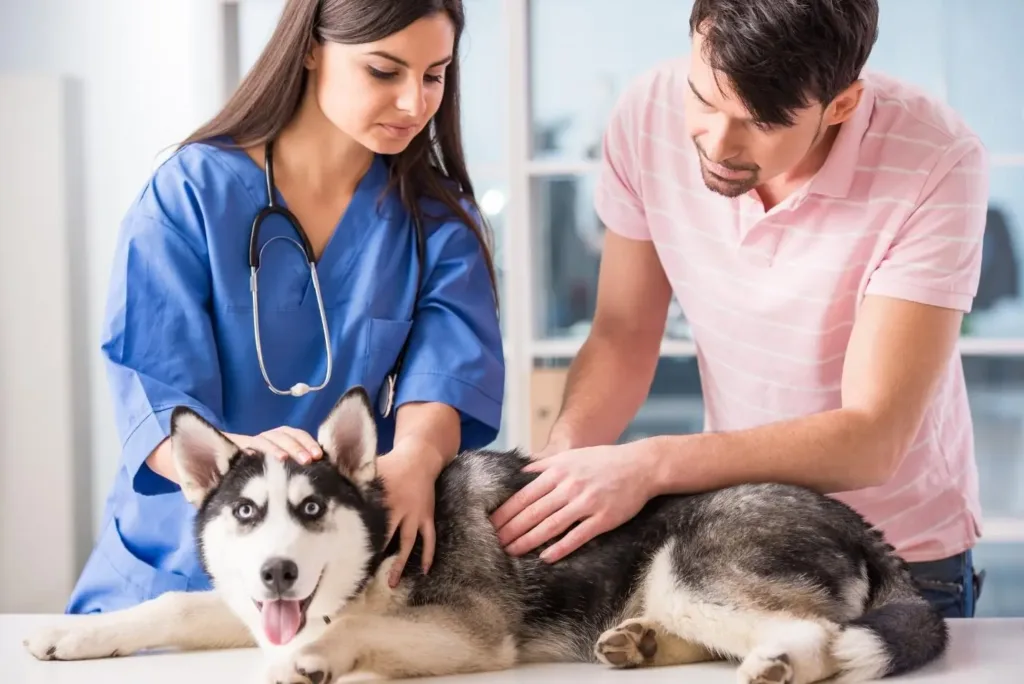
Veterinary care encompasses a wide range of medical services tailored specifically to the needs of animals. It’s essentially Healthcare for pets and other animals, provided by trained professionals called veterinarians or vets. This care is designed to promote and maintain the health and wellbeing of animals, just as medical care does for humans.
Veterinarians diagnose and treat diseases and injuries, conduct operations, give prescriptions, and provide prophylactic care, such as annual physicals and vaccines. Additionally, veterinary centers often extends to dental health, nutritional counseling, behavioral assessments, and specialized treatments for specific conditions.
Types of Veterinary Care
Veterinary care isn’t one-size-fits-all. It spans various specialties, including general practice, emergency care, surgery, dentistry, dermatology, and more. Each area focuses on specific aspects of animal health to provide comprehensive care for our furry companions.
1. General Practice Veterinary Care:
General practice veterinary care forms the backbone of veterinary services. These practices provide routine check-ups, vaccinations, and preventive care for pets. They also diagnose and treat common illnesses and injuries, offer nutritional guidance, and perform spaying/neutering procedures.
2. Emergency Veterinary Care:
Emergency veterinary care is crucial for addressing sudden and life-threatening conditions in animals. These specialized facilities are equipped to handle emergencies 24/7, providing immediate medical attention for accidents, injuries, severe illnesses, and other critical situations.
3. Surgical Veterinary Care:
Surgical veterinary care involves performing surgical procedures to address various health issues in animals. This includes routine surgeries like spaying/neutering, as well as more complex procedures such as tumor removals, orthopedic surgeries, and soft tissue surgeries.
4. Dental Veterinary Care:
Dental veterinary care focuses on maintaining oral health in animals. Veterinarians perform dental cleanings, extractions, and treatments for dental diseases such as periodontal disease. Good dental health is essential for preventing pain, infection, and other systemic health issues in pets.
5. Specialty Veterinary Care:
Specialty veterinary care involves the diagnosis and treatment of specific medical conditions in animals. These specialties include dermatology, cardiology, oncology, neurology, ophthalmology, and internal medicine. Specialists have advanced training and expertise in their respective fields to provide specialized care for complex cases.
Veterinary Care & Consultation is Necessary for Pets
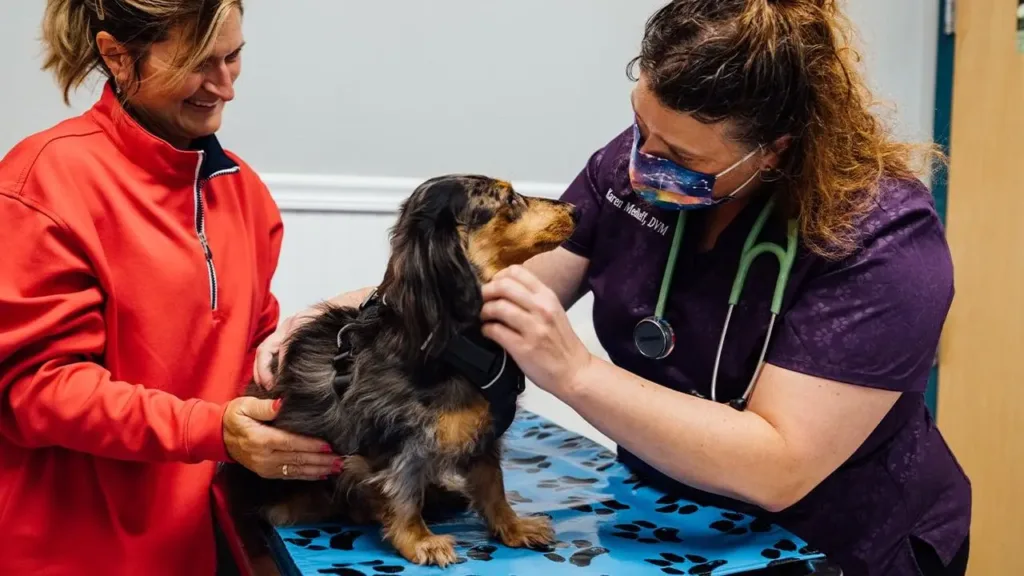
Veterinary care and consultation are not just optional for pets; they are essential components of responsible pet ownership. Just like humans, animals require regular healthcare to stay healthy, prevent illnesses, and address any medical issues that may arise. Here’s why veterinary care and consultation are necessary for pets:
Early Detection of Health Issues:
Regular veterinary check-ups allow veterinarians to detect potential health problems in pets early on. Through physical examinations, screenings, and diagnostic tests, veterinarians can identify issues such as dental disease, heart murmurs, arthritis, and cancer before they become serious.
Preventative Medicine:
Veterinarians provide essential preventative care to keep pets healthy and protected from common diseases. This includes vaccinations, parasite control, heartworm prevention, and flea and tick prevention. By staying up-to-date on preventative measures, pet owners can help their pets live longer, healthier lives.
Individualized Care Plans:
Veterinary consultations enable veterinarians to develop individualized care plans for each pet based on their age, breed, lifestyle, and medical history. These plans could include advice on diet, exercise, dental care, and specialty treatments for particular health issues.
Dietary advice and nutrition:
In order to preserve a pet’s general health and wellness, proper nourishment is essential. Veterinarians offer guidance on selecting the right diet for pets based on their age, size, activity level, and any underlying medical conditions. They can also recommend dietary supplements and prescription diets to support optimal health.
Behavioral Counseling:
When it comes to typical behavioral problems in pets, like aggression, anxiety, and inappropriate elimination, veterinarians offer helpful behavioral counseling. Through consultation and behavior modification techniques, veterinarians help pet owners understand and manage their pet’s behavior effectively.
Emergency Preparedness:
In addition to routine care, veterinarians play a critical role in emergency preparedness for pets. They educate pet owners on recognizing signs of illness or injury, provide guidance on first aid measures, and offer emergency care services to address urgent medical needs promptly.

Strengthening the Human-Animal Bond:
A solid relationship between pets and their owners is fostered by routine veterinary treatment. Owners that prioritize their Pet’s health and well-being show that they are dedicated to giving them the best care available. The quality of life is improved by this link for both humans and pets.
Veterinary care and consultation are indispensable for pets, serving as essential pillars of responsible pet ownership. By partnering with veterinarians and prioritizing their pet’s health, owners can ensure that their furry, feathered, or scaled companions enjoy a lifetime of health, happiness, and companionship
Importance of Veterinary Care for Your Pet
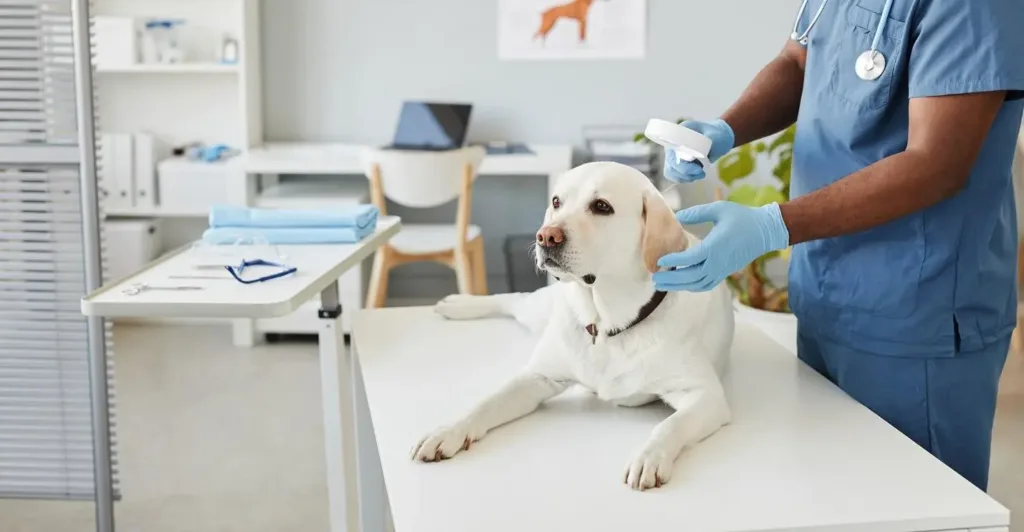
Veterinary care isn’t just about treating illnesses; it’s about preventing them too. Regular check-ups, vaccinations, and screenings help keep your pet healthy and happy. Plus, veterinarians offer valuable advice on nutrition, behavior, and overall wellness to ensure your pet thrives.
It is impossible to emphasize how important veterinarian care is for your pet. Pets need routine medical care just as people do in order to live long, healthy, and happy lives. The following justifies the importance of veterinary treatment for your pet’s health.
Vaccinations and prophylactic treatments to shield your pet from common illnesses and parasites are part of routine veterinarian care. By staying up-to-date on vaccinations and preventative medications, you can significantly reduce the risk of your pet contracting serious illnesses such as distemper, parvovirus, rabies, heartworm, and flea-borne diseases.
What Are the Benefits of Regular Veterinary Care?
Many advantages come with routine veterinary treatment for your pet, such as:
- Early Disease Detection: Regular examinations can identify health problems in your pet before they worsen and may even save their life.
- Preventative Medicine: Vaccinations, parasite control, and dental care can prevent common illnesses and keep your pet in top condition.
- Longer Lifespan: By addressing health concerns promptly and providing preventative care, veterinary visits contribute to a longer, healthier life for your pet.
- Improved Quality of Life: Veterinary care not only treats ailments but also enhances your pet’s overall quality of life by addressing pain, discomfort, and behavioral issues.
Role of Veterinarian in Animal Welfare
Veterinarians play a pivotal role in promoting animal welfare. Beyond providing medical treatment, they advocate for the health and wellbeing of all animals. From rescuing injured wildlife to promoting responsible pet ownership, veterinarians are passionate about safeguarding the welfare of our furry, feathered, and scaly companions.
Top Veterinary Care Centers in the UK
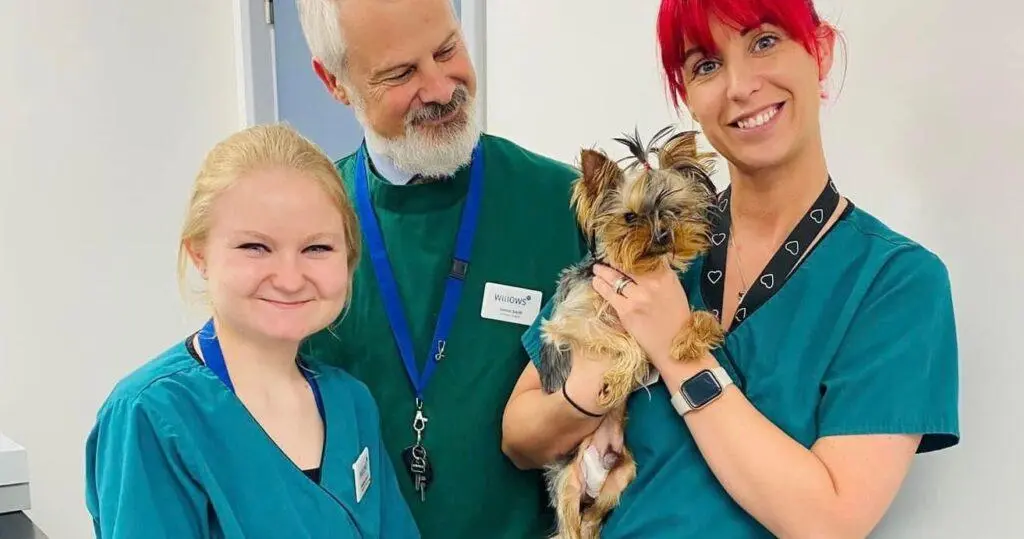
Now, let’s dive into the top veterinary care centers in the UK that go above and beyond to provide exemplary care for pets:
1. Vets for Pets
Vets for Pets is dedicated to putting pets first. As part of the Pets at Home Group, they boast a national network of practices run by passionate partners committed to animal health and welfare. With accredited practices and a focus on clinical freedom, Vets for Pets offers first-class service and high standards of care.
2. CVS Group
The CVS Group is the largest integrated veterinary service provider in the UK. With over 370 veterinary surgeries, diagnostic laboratories, pet crematoria, and more, CVS Group offers comprehensive veterinary care across the country.
3. Vets Now
Vets Now specializes in emergency pet care, providing round-the-clock services to ensure pets receive prompt medical attention when they need it most. With multiple locations nationwide, Vets Now offers a unique customer-centered experience that prioritizes the wellbeing of pets and their owners.
4. Eville & Jones
Throughout Europe, Eville & Jones is a top supplier of formal veterinary controls that are outsourced. In order to ensure compliance with legal requirements, their knowledgeable personnel provides audit, verification, and enforcement services in the areas of animal welfare, public health, and animal health.
5. Ceva Animal Health
Ceva Animal Health is dedicated to advancing pet healthcare through innovative biotech and pharmaceutical solutions. With a focus on research and development, Ceva Animal Health strives to improve the lives of pets and their owners through cutting-edge veterinary products.
6. DNA Vetcare
DNA Vetcare is an independent group of award-winning surgeries founded by veterinary surgeons Alan van Heerden and Dane Walker. With handpicked veterinary surgeons and a reputation for compassionate care, DNA Vetcare is committed to providing the very best veterinary services across London and Kent.
7. Veterinary Emergency Group
Veterinary Emergency Group revolutionizes emergency pet care with a customer-centered approach. Their fully open-plan hospitals and immediate access to doctors ensure pets receive the care they need, when they need it, with locations open 24/7 nationwide.
8. MedVet
MedVet is a leading provider of emergency and specialty referral veterinary hospitals across 15 states. Employee-owned and veterinary-led, MedVet offers in-depth patient care and emergency services 24/7, ensuring pets receive the specialized care they deserve.
9. Southern Veterinary Partners
Southern Veterinary Partners is a network of veterinarian-owned animal hospitals committed to providing best-in-class veterinary care and exceptional client experiences. With integrated support and a focus on compassionate care, Southern Veterinary Partners delivers top-notch veterinary services across the country.
10. Windy City Dog Walkers
Windy City Dog Walkers offers professional dog walking and pet care services in various Chicago neighborhoods. They offer the best caliber of professionalism in pet care and are insured, bonded, and licensed, so you can be confident your furry friends get the care and affection they need.
Conclusion:
In conclusion, selecting the best veterinarian care facility is critical for the health and happiness of your cat. Whether it’s routine check-ups, emergency care, or specialized treatments, these top veterinary care centers in the UK are dedicated to providing exemplary care for your beloved pets.
FAQs:
1. Why is regular veterinary care important for my pet?
Regular vet care ensures early detection of health issues, preventative treatments, and guidance on nutrition and behavior, promoting your pet’s overall health and longevity.
2. How often should I take my pet to the veterinarian?
Frequency varies by age and health status. Generally, puppies, kittens, seniors, and those with chronic conditions need more visits. Your vet can recommend a personalized schedule for wellness and preventative care.
3. What vaccinations does my pet need?
Vaccine needs depend on species, age, lifestyle, and location. Common vaccines for dogs include distemper, rabies, and leptospirosis. Cats may need vaccines for leukemia, rabies, and respiratory diseases. Your vet can advise.
4. How can I ensure my pet maintains good dental health?
Regular vet check-ups, dental cleanings, toothbrushing with pet-safe toothpaste, and dental-friendly toys and diets can help maintain oral hygiene. Your vet can offer personalized advice for your pet’s dental care.
5. What should I do in case of a pet emergency?
In emergencies, act quickly and seek vet care immediately. Signs include difficulty breathing, severe injury, poisoning, seizures, or abrupt behavior changes. Keep your vet’s contact info and an emergency clinic number handy.

